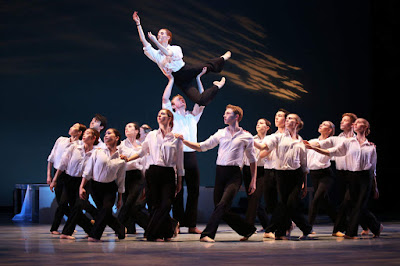What’s not to like? World class ballet set to the strains of
Pink Martini, a popular Portland-based orchestra that spans genres of classical
music, traditional pop, Latin music and jazz? You bet! What fun, witnessing a unique
combination of music and dance on Sunday, February 18 at the Hult Center for
the Performing Arts in Eugene.
Sunday, February 25, 2018
In The Pink
Friday, February 9, 2018
Mud Bowl Menagerie
The event had become tradition; a
loose collective of confederates would gather on Super Bowl Sunday for a flag football
game of their own, typically held at a Eugene park or high school, followed by
a watch party supplemented by snack food and beer -- lots of beer. This year's contest would mark the 26th annual Mud Bowl.
Initially, games were contested in Eugene during rainy
season, and the annual event was an exercise in survival of the fittest -- in the
mud. However, each Mud Bowl took on its own persona and, some years, sponsors.
This year’s fete was dubbed “Donald Trump Presents Mud Bowl XXVI: The Shithole
Bowl" (The Norwegians vs. The Haitians).
The previous year’s “big story” spawned the themes. When Tiger Woods
was in the news, we had “The Tiger Bowl” (The Tigers vs. The Angry Swedes);
during the Great Recession, we had “The Economy Bowl” (The Wall Street Bailouts
vs. The Main Street Discounts); then, there's my fave, “The Bitch Bowl” (The
Tonyas vs. The Nancys).
Named after John Jacob Astor, an investor from New York City who owned the American Fur Company, Astoria was founded in 1811 and featured the first U.S. post office west of the Rocky Mountains. We stayed at the Commander’s Quarters, a Victorian home (above) adjacent to Fort Stevens, a former military installation.
Visiting the museum at Fort Stevens, I was reminded about
the enemy attack in 1942, when a I-25 Japanese submarine surfaced and fired 17
shells from its gun deck. The shots fell harmless because the fort’s commander
had ordered an immediate blackout and refused to permit return fire, which
would have revealed their position.
Despite the lack of engagement, the Japanese attack helped
create the 1942 “West Coast invasion scare,” and the Fort Stevens shelling was
the only time that a continental U.S. military installation was attacked by the
Axis powers during World War II. Today, Fort Stevens is preserved as an Oregon
State Park, where elk roam freely.
Subscribe to:
Posts (Atom)









